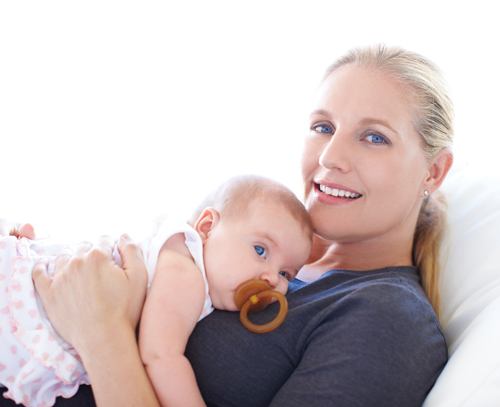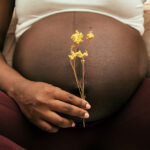Motherhood at any age

Ask a group of women how old they were when […]
Ask a group of women how old they were when they became mothers for the first time, and you’re bound to hear a variety of responses. Despite notions that motherhood is a universal experience, each new mom’s parenting story is as unique as her baby. Whether you’re having a baby in your 20s, 30s or 40s, you’re certain to have your own share of challenges and joys, health considerations and social concerns. But remember, whatever your age, your pregnancy experience will help shape you into the mother you are meant to be.
Your 20s
With minimal health risks and little to no fertility issues, you have both time and biology on your side when you have a baby in your 20s. Still, that doesn’t mean you can sit idly by and expect to have a healthy nine months. Younger women might not realize that taking charge of their prenatal health starts before they even get pregnant, notes Daniel Roshan, MD, OB/GYN in New York City. He recommends getting a full medical checkup, including blood work, before getting pregnant to screen for any health risks.
Meeting all of the nutritional requirements can also be a challenge for women in their 20s, notes Roshan, putting them at risk of delivering at a low birth weight. Approximately three months before you plan to conceive, begin taking prenatal vitamins, a folic acid supplement and 1,000 milligrams each of calcium and omega-3. “The calcium is essential for healthy bone development, which the baby gets from the mother,” says Roshan. “Insufficient calcium can lead to osteoporosis.” Omega-3 supplements improve your baby’s brain function and decrease the potential for premature labor.
Beyond taking charge of their health, younger moms also need to prepare themselves for major lifestyle changes. Larisha Campbell, mom of one in of Sicklerville, New Jersey, was fortunate to have a complication-free pregnancy and postpartum recovery at age 26. But as a new, younger mom, Campbell’s greatest challenge was learning how to manage her new family dynamic. “My fiancé and I went from being able to do whatever we wanted, whenever we wanted to having to balance naps, feedings and everything else that comes with motherhood,” she explains. Taking the time to figure out what would work best for her family was essential to getting herself acclimated to her new role. “We found that when we worked ourselves into our daughter’s life—rather than her into our lives—everyone was happier,” she says.
Another obstacle for Campbell was the social aspect of new motherhood. Having recently moved to the New Jersey suburb where her daughter was born, she hadn’t met many people before becoming pregnant. After looking up area mom groups via Facebook and Meetup.com, she began attending events in search of other moms with similar parenting styles.
Eventually, Campbell struck gold with a local La Leche League chapter and a babywearing and cloth diapering group. Not only was she able to reach out with breastfeeding questions, but she also developed relationships with a few other moms whom she socialized with outside of group meetings. This helped her make friends with other likeminded mothers and also helped broaden her horizons as a parent. “We meet for lunch, walks, shopping, playdates and more, sometimes once a week,” she says. “We trust each other to watch each other’s children when we don’t trust anyone else because of the bond we’ve built.”
Your 30s
Your 30s may seem like an ideal decade to start a family thanks to the likelihood of an established career and a strong relationship with your partner. But with fertility rates beginning to drop after age 35 and the proverbial biological clock ticking, the pressure to have a baby is definitely on. Because the risk for health complications increases as women enter their 30s, women in this age range must take proper precautions to ensure a healthy pregnancy.
“As women get older, their health risks tend to increase, and there’s a greater chance for miscarriage,” Roshan says. After 35, women are at a greater risk of developing gestational diabetes and are more likely to develop high blood pressure during pregnancy, so taking charge of your diet and exercising are essential.
And at the same time, fertility issues become more prevalent as women age, so getting pregnant in your mid- to late-30s can be a challenge in itself. Jennifer Welsh, mom of two in Northport, New York, struggled with fertility issues for about a year before becoming a new mom at age 35. She gave birth to her second child at 37, and although both babies were born via C-section, Welsh found it much harder to recover from the second delivery.
“Maybe it was because I was running after a 2-year-old and I had never gotten back to my old exercise routine,” she muses. Welsh’s second child was a bigger baby too, which added to her pregnancy’s impact. “I was definitely feeling it,” she says.
Having a baby at age 31 was also a growing experience for Lynda Seevers, mom of two in East Northport, New York. While high blood pressure prompted an induction 10 days prior to her son’s due date, she didn’t suffer any lasting health problems. Socially, motherhood prompted Seevers to go outside her comfort zone and make new friends—a challenge she is still working on.
“Being an introvert, it’s not easy to make friends with other moms,” she explains. “I often worry I come across as uninterested and standoffish. I try to make more of an effort to chat with other parents, and it has gotten a bit easier, especially as you meet more and more nice moms.”
After Seevers had her second child at age 35, she took more time to enjoy the moment. “Because I knew this was my last pregnancy, I tried to really enjoy and remember everything about it,” says Seevers, who kept a journal and took more photos this time around. Instead of finding out her baby’s gender as she did with her son, she and her husband decided to wait until their daughter’s arrival to learn her sex. “It was so much more exciting and unbelievably surprising,” she recalls.
Your 40s
Women who choose to start a family later in life may not be in the majority of the new mother pool, but they are often well-established in both their careers and personal relationships. Still, getting pregnant in your 40s presents its own set of challenges. Around half of women over 40 have fertility problems, according to the American Society of Reproductive Medicine. If you’re in your 40s and have your heart set on motherhood but can’t conceive on your own, there are options available, including in vitro fertilization, so seek out a fertility specialist.
Genetic concerns also come into play as women age. For example, the chance of giving birth to a baby with Down syndrome at age 40 is 1 in 100, but 1 in 30 at age 45, according to the March of Dimes. If you are over 35 and pregnant, consider chorionic villus sampling (CVS) or amniocentesis to test for genetic and chromosomal abnormalities, as well as any other genetic tests recommended by your healthcare provider.
Perhaps the biggest challenge of all new moms in their 40s is the adjustment to fulltime caregiver. That’s because after years of having your work and social life take precedence, the addition of a newborn can alter your entire sense of self. Michele Silver, a mom in Montclair, New Jersey, who became pregnant just months before her 40th birthday, remembers what it was like to relinquish control when her daughter was born. “There was a little person who was completely dependent upon me for everything,” she shares. “It was very overwhelming and intense. I had to learn to be OK with just sitting and nursing my child for as long as she needed—which was a very long time.”
While Silver experienced some minor health issues during her pregnancy, she developed other postpartum complications: carpal tunnel syndrome from holding her baby while nursing, “nursing neck” and severe sciatic pain that made sleeping on her side painful. Silver wound up getting physical therapy for her neck and wore wrist guards while nursing. “When I got back to exercising and doing some yoga, the sciatic pain improved as well,” she adds.
Because Silver had not been living in her suburban New Jersey town for very long before becoming a parent, she hadn’t had much opportunity to meet other women. When she became pregnant, she enrolled in prenatal yoga classes and met a few moms-to-be.
But it wasn’t until her daughter was 3 weeks old that, at the advice of her sister, Silver joined a new mothers class at a local hospital (incidentally, not where she had delivered), and everything changed. “I walked into the room, which was filled with mothers nursing, attempting to soothe their crying newborns, changing diapers,” she recalls. “I immediately felt a sigh of relief … knowing that I didn’t have to be alone in this.”
Her new moms group met weekly at the hospital for nearly five months and then moved over to one of the mom’s homes until the children were close to 2 years old. “I looked forward to this group every week, and I can honestly say that it saved me from going completely insane and feeling utterly isolated in those first few difficult months,” says Silver.
Even though she admits to being on the older end of the group, whose members ranged from mothers in their mid-20s to early 40s, age didn’t matter much. “I often feel more connected to the older first-time moms, but my best mom friend for a long time was 10 years younger than me,” she adds. “I feel incredibly lucky and grateful that I came to the group, and I don’t know what I would have done without it.”
By Ginny Butler
Images: iStock.com







